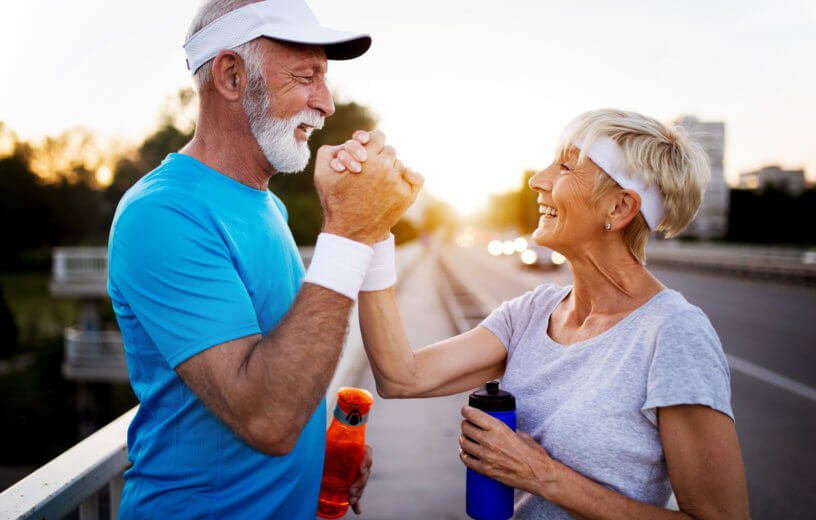CAMBRIDGE, Mass. — Think vigorous exercise is just for the young? Think again. Although it’s a common belief that older adults should slow down in their later years, a new study finds seniors should be doing the exact opposite! Researchers from Harvard University say evolution actually explains why staying physically active during old age keeps people alive longer.
A team of evolutionary biologists and biomedical researchers found evidence that humans — who evolved to live for several more decades after they stop reproducing — also evolved to benefit more from exercise during old age. Their study reveals that physical activity during old age shifts energy away from biological processes that cause disease and moves it towards mechanisms throughout the body which extend life.
They theorize that humans separated themselves from apes during evolution by developing the ability to slow the effects of aging through physical exercise. This protects older adults from chronic conditions such as heart disease, diabetes, and even cancer.
“It’s a widespread idea in Western societies that as we get older, it’s normal to slow down, do less, and retire,” says Harvard evolutionary biologist Daniel E. Lieberman in a university release. “Our message is the reverse: As we get older, it becomes even more important to stay physically active.”
Humans evolved from ‘couch potatoes’
Lieberman and study co-author Aaron Baggish, team cardiologist for the New England Patriots, believe this is the first paper to explain how evolution plays a role in why less exercise contributes to disease and early death. Researchers used apes — the distant cousins of humans — as a “jumping-off point” in their research.
Typically, apes only live for 35 to 40 years and rarely survive past menopause. However, apes are also much less active than most humans. This suggests that humans reached a point in their evolution where people developed a way to stay alive longer through more activity.
“We evolved basically from couch potatoes,” Lieberman explains. He also recalls being surprised by how much time apes in Tanzania spend “sitting on their butts, digesting.”
The behavior of apes stands in stark contrast to ancient hunter-gatherers, who the team says averaged around 135 minutes of moderate-to-vigorous physical activity a day. Study authors believe this level of activity, up to 10 times more than the average American, is the reason hunter-gatherers lived to around 70 years-old — 20 years past the point where humans stop having children.
Exercise causes the body to build back stronger
Researchers looked at two ways exercise shifts energy to improve health. The first focuses on steering excess energy in the body away from potentially harmful processes, such as excess fat storage.
The team finds humans also use energy from physical activity to repair and maintain the body. Along with burning calories, exercise actually does widespread harm to the body — in the form of physiological stress and by causing damage on a cellular, molecular, and tissue level.
However, study authors say this damage is essential so the body can build itself back even stronger. Through exercise, the body starts repairing muscle fibers, cartilage damage, and microfractures in the bones. This response also releases exercise-related antioxidants and anti-inflammatories into the bloodstream. When people are less active, these processes are also less active, putting people at higher risk of disease.
Previous studies have shown that the body’s natural cellular and DNA repair processes can lower a person’s risk of developing obesity, diabetes, weak bones, depression, and Alzheimer’s disease later in life.
“The key take-home point is that because we evolved to be active throughout our lives, our bodies need physical activity to age well. In the past, daily physical activity was necessary in order to survive, but today we have to choose to exercise, that is to do voluntary physical activity for the sake of health and fitness,” Lieberman concludes.
“The good news is that you don’t need to be as active as a hunter-gatherer. Even small amounts of physical activity — just 10 or 20 minutes a day —substantially lower your risk of mortality.”
The findings appear in the journal Proceedings of the National Academy of Sciences.
